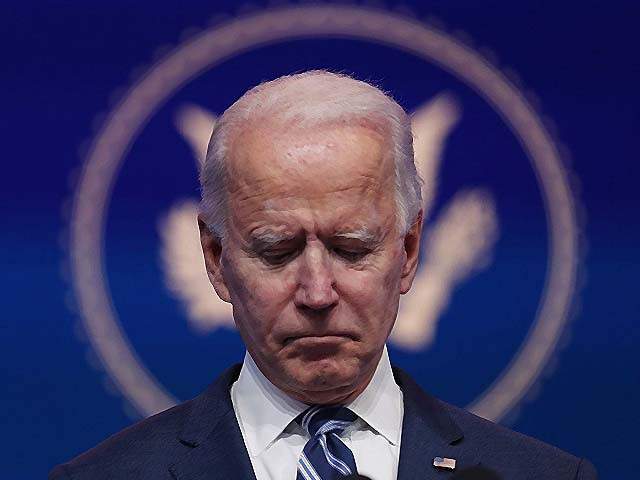After a decisive victory in the November elections, President-elect Joe Biden is already devising new plans to hasten America’s transition away from “Trumpism” — especially in the context of the Covid-19 pandemic, which is still wreaking havoc in the United States (US). The result of the deeply divisive elections, moreover, brought a sense of relief for many countries that were directly impacted by President Donald Trump’s aggressive foreign policy. Expectations for better relations with the global superpower are rising, and felicitations for Biden’s victory are pouring in. However, whether or not Biden will significantly transition away from Trump’s international policies still remains to be seen. This piece aims to underline the avenues in which we should and should not expect a major change in US foreign policy in the upcoming days.
During his tenure, President Trump not only criticised the role of global institutions but also pulled the US out of numerous deals and executive agreements. Among others, the most prominent exits were from the Paris Agreement in 2017 and the Joint Comprehensive Plan of Action (JCPOA), also known as the Iran nuclear deal, in 2018. Moreover, the Trump administration, in July this year, announced that the US will formally withdraw from the World Health Organisation (WHO) by 2021. However, unlike Trump, President-elect Biden is an internationalist who reveres the role of international institutions, and we shall likely see a major foreign policy shift in this direction. According to Forbes, Biden is already poised to promulgate executive orders during his first day in the oval office that will reverse a number of Trump’s decisions. The report underlines that two such executive orders will pave the way for the US to rejoin the Paris climate accord and the WHO, as climate change and the raging pandemic are among his top priorities.
Similarly, experts suggest that under Biden, Washington will tone-down its rhetoric against Tehran to bring it back to the negotiation table. On several occasions Biden has criticised Trump’s unilateral withdrawal from the landmark deal that successfully halted Iran from developing advanced centrifuges for uranium enrichment that can be used for developing nuclear weapons. The Trump administration also levied harsh economic sanctions on Tehran that have massively impacted its already crippling economy and, as a result, on September 6, 2020 the Iranian leadership announced that it will lift all limits on the development of centrifuge technology. Other European nations that are involved in JCPOA, nevertheless, are optimistic that Biden will resume dialogue with Tehran on this issue. Iranian President Hassan Rouhani, in a recent statement, also expressed optimism about resuming the deal with the new administration. However, his foreign minister underlined that the terms of the agreement cannot be renegotiated.
On the other hand, the America’s approach towards China will likely remain unchanged. There is bipartisan consensus in the US against China’s rising clout, and foreign policy experts in Washington see China as an ambitious and aggressive strategic competitor to American interests. Nonetheless, we can expect a change in rhetoric against China from the new administration. They will likely reorient the anti-China rhetoric towards human rights violations by Beijing, instead of leveling racist accusations — a hallmark of Trump’s presidency. Moreover, a report from The New York Times suggests that there is a very slim chance that Biden will reverse any of Trump’s harshest measures against China, including tariffs and restrictions on Chinese technology. On the same pretext, New Delhi will enjoy a diplomatic edge in the region. As I argued in my previous piece, India is the only formidable force against Chinese expansionism and the Biden administration will continue to back it, both diplomatically and militarily. This also means that while the new administration will view New Delhi as a strategic ally against China, Islamabad will be pushed back to the Afghan-Pak policy developed under President Barack Obama.
However, this does not mean that the importance of Pakistan’s ties with the US will diminish in any way. Acknowledging Pakistan’s role in the Afghan peace process, the new administration will likely engage with Islamabad to explore new options for ending the Afghan war. Evident from the fact that Biden was the only person who advised President Obama to take Islamabad into account before approving the Abbottabad Operation in 2012, the new administration will also avoid any misstep that will potentially strain US-Pak ties. Afghan peace and regional stability will be among the administration’s top priorities, but, unlike Trump, Biden will strive to develop a long term plan for ending the Afghan issue instead of abruptly withdrawing American forces from the region. It is also unlikely that the Biden administration will cede the way to Taliban forces in Kabul.
Conclusively, it is safe to predict that unlike Trump, Biden will make every possible effort to strengthen US multilateral ties with its allies (NATO) and global institutions. However, any major foreign policy shift in America’s bilateral relations with China is unexpected. Similarly, it is unlikely that there will be a major change in US foreign policy for South Asia, and the new administration will only promote regional stability through diplomatic dialogue. Nonetheless, after four years of populist “America First” policies, Biden is confronted by numerous internal and external challenges, and the upcoming years will not only test his experience as the former the chair of the Senate Foreign Relations Committee, but will also decide the fate of his internationalist leanings.



COMMENTS
Comments are moderated and generally will be posted if they are on-topic and not abusive.
For more information, please see our Comments FAQ